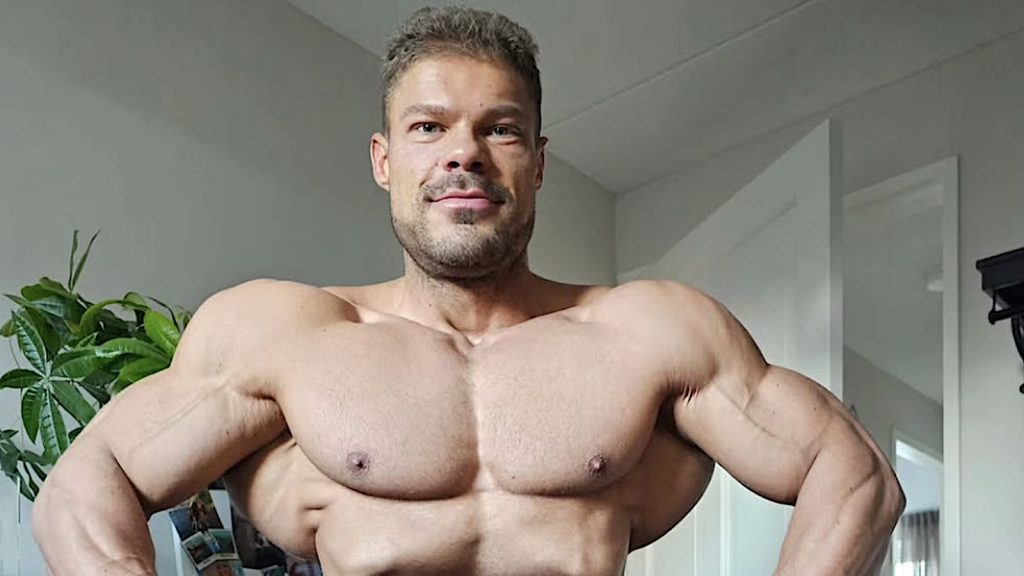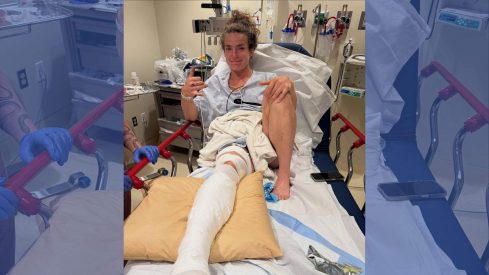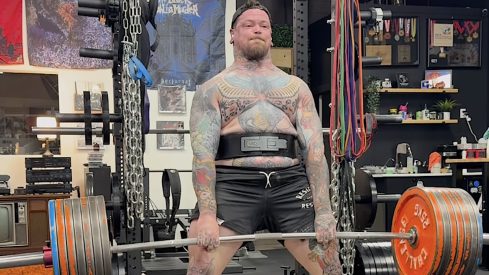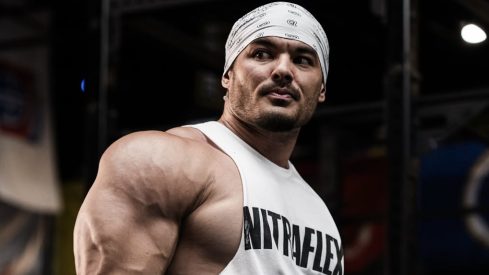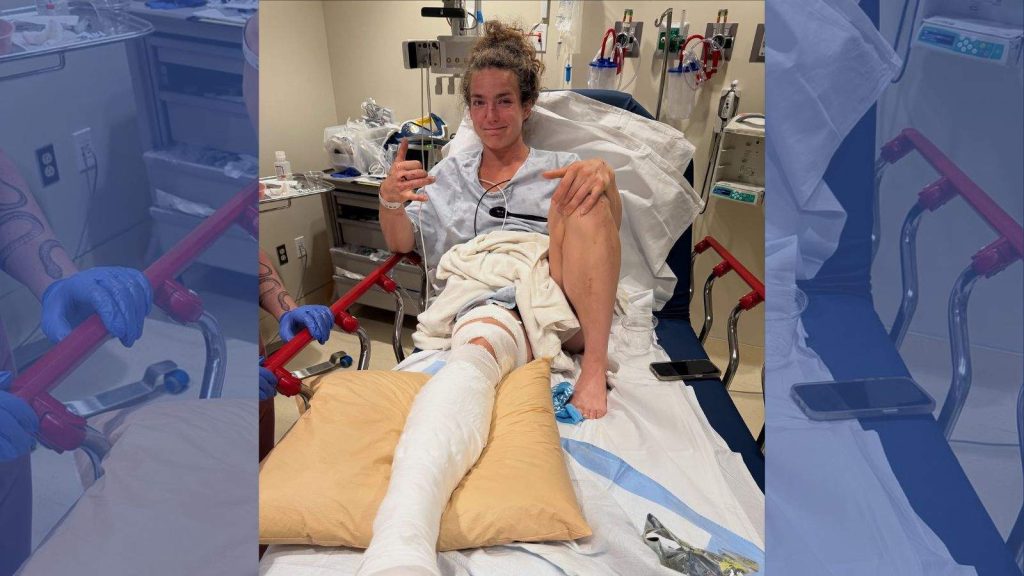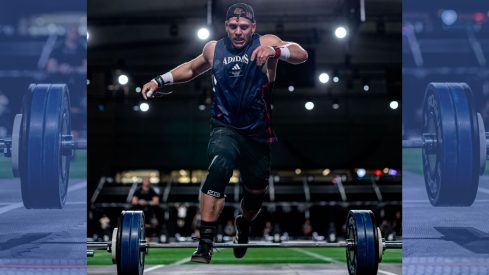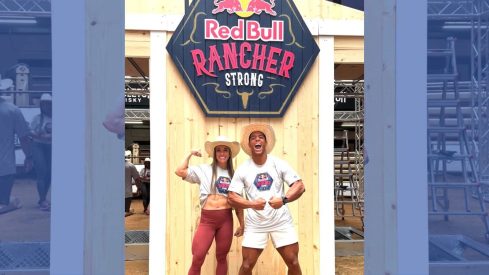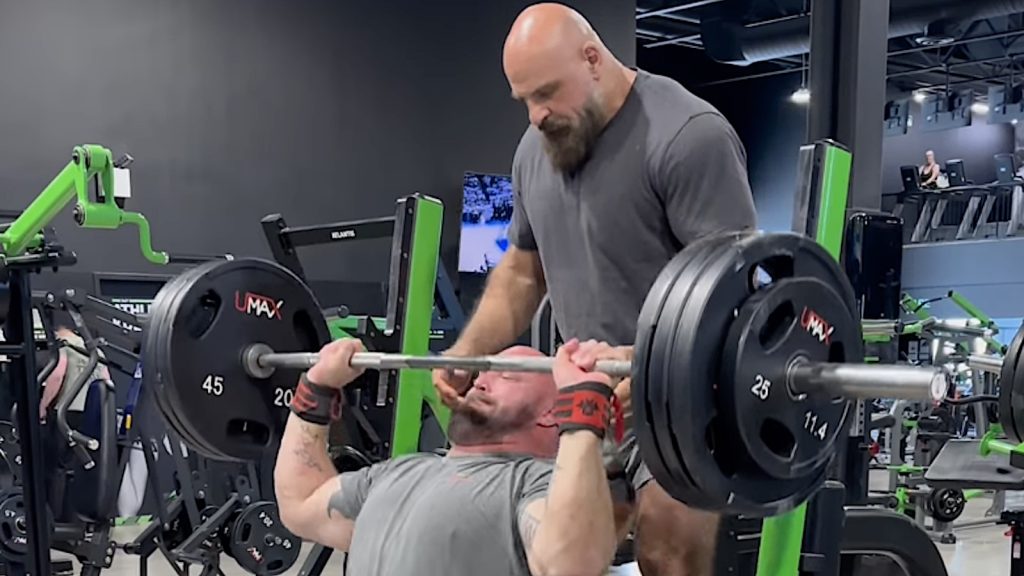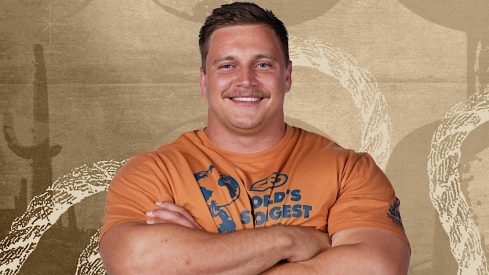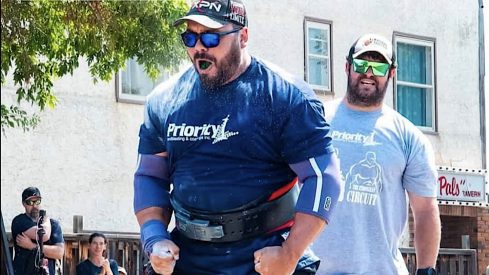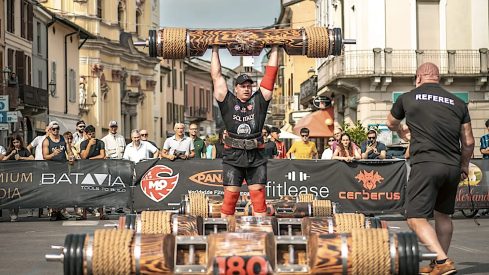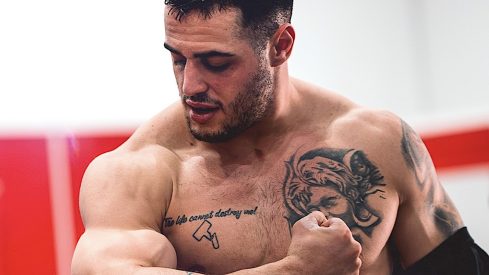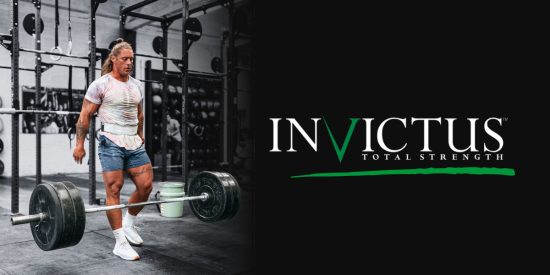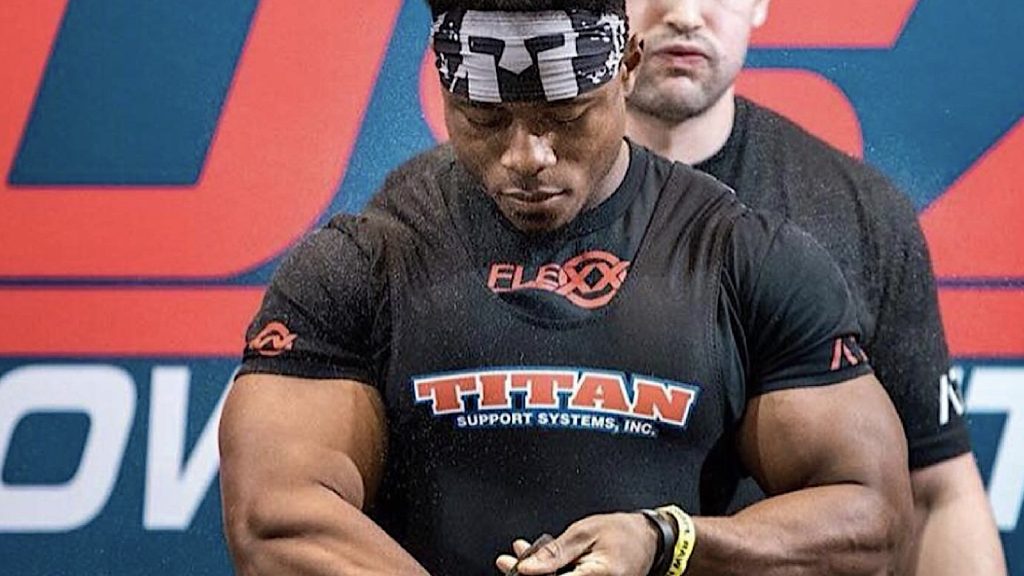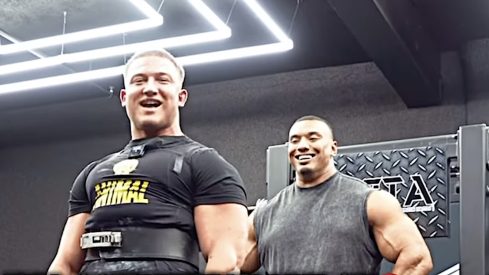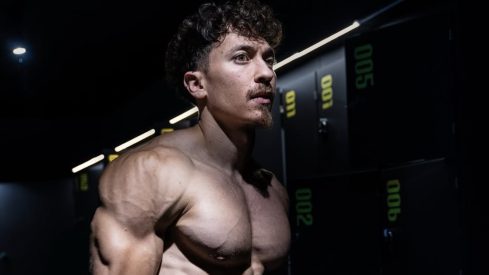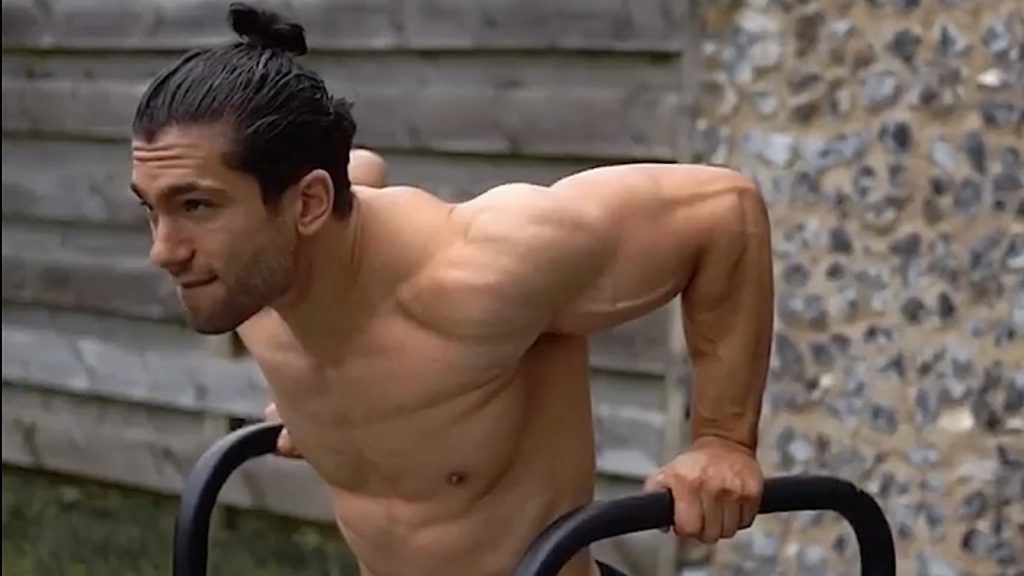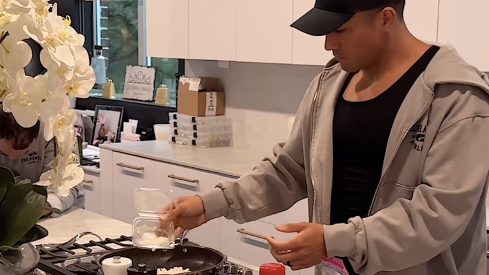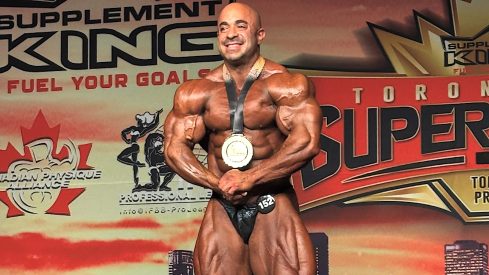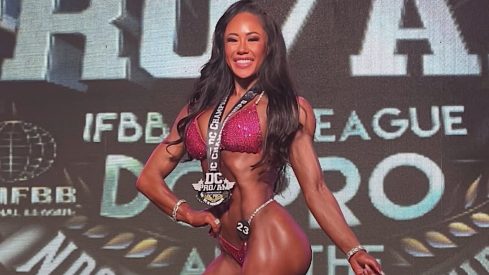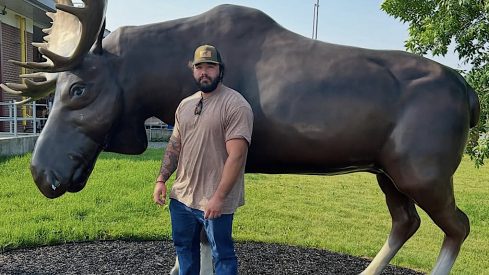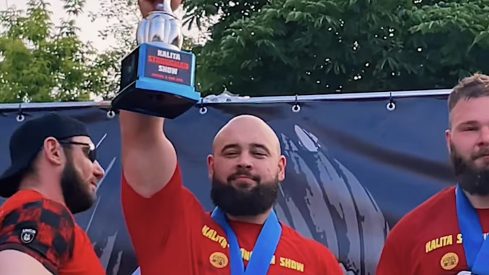Latest News
-
Why Wesley Vissers Follows a Free-Weight-Only Arm Routine
“It’s possible to build your physique to a pro level using only free weights,” 2024 Arnold Classic Physique champ Wesley Vissers says. Renowned for his classical aesthetics and top-tier arms, Vissers won his IFBB pro card using only barbells and dumbbells. His elite development is anchored in old-school philosophies with new-school techniques. Vissers suggests limiting each movement to two…
Crossfit
-
Alex Gazan’s CrossFit Games Season in Jeopardy After Car Accident Leaves Her With Fractured Fibula
On Sunday, June 8, Alex Gazan celebrated her fourth CrossFit Games qualification following her win at the Northern California Classic In-Person Qualifying Event in Sacramento, CA. Two days later, she felt lucky to be alive and wondered whether she could compete at the August Games. What Happened? On June 10, Gazan and her husband were involved in…
Strongman
-
Muscle-Gaining Methods For Non-Bodybuilders
Packing on legitimate muscle is a science most beginners get wrong. It’s far more nuanced than just eating more calories or lifting heavier weights sometimes. It requires training periodization, recovery, nutrition, and patience. Three-time Arnold Strongman Classic champion and 2024 Strongest Man on Earth Mitchell Hooper wasn’t always a muscle-bound giant. He’s found practical strategies for adding quality mass. Before Hooper…
Weightlifting
-
China’s Weightlifting Team’s Core Training Floats Weights on Their Upper Back
The Chinese weightlifting team has dominated the global stage, with five of their six athletes clinching gold medals at the Paris 2024 Olympic Games. Their remarkable performance at the Tokyo 2020 Olympics saw eight Chinese weightlifters acquire seven golds and one silver. In mid-April 2025, Shenzhen Weightlifting, a training association for elite weightlifters, shared the Chinese weightlifting team’s updated…
Powerlifting
-
Russel Orhii Will Not Compete at the 2025 World Games
At the 2025 Sheffield Powerlifting Championships, Russel Orhii hit an IPF world record raw squat of 338 kilograms en route to an 870.5-kilogram total in the 83KG class. The 30-year-old’s strength continues to climb thanks to his strategic bulking. In early June 2025, Orhii confirmed that he will not compete at the 2025 World Games, held in Chengdu, China, from…
Bodybuilding
-
Dip Correctly or Don’t Dip at All
The dip is an often-overlooked bodyweight exercise for building strength in the arms, chest, and shoulders. (1) Building strength in this exercise can enhance performance in other compound pushing movements, such as the overhead press and barbell bench press. Beyond building upper body strength, dips enhance core strength and improve stability. However, proper form is essential to maximize results and avoid shoulder injury. Daniel Vadnal, a renowned physiotherapist, calisthenics expert, and creator of…
More News
-
Dip Correctly or Don’t Dip at All
The dip is an often-overlooked bodyweight exercise for building strength in the arms, chest, and shoulders. (1) Building strength in this exercise can enhance performance in other compound pushing movements, such as the overhead press and barbell bench press. Beyond building upper body strength, dips enhance core strength and improve stability. However, proper form is essential to maximize results and avoid shoulder injury. Daniel Vadnal, a renowned physiotherapist, calisthenics expert, and creator of…
-
Hay Bales and Heavy Lifts — Gui Malheiros and Arielle Loewen Are “Rancher Strong”
-
2025 Strongman Champions League Italy Results
-
HYROX World Championships 2025: How to Watch, Rosters, and Schedule
-
2025 Beast of the East Strongman Results
-
2025 Moscow Strongman Open Results
-
2025 Kalita Strongman Show Results
